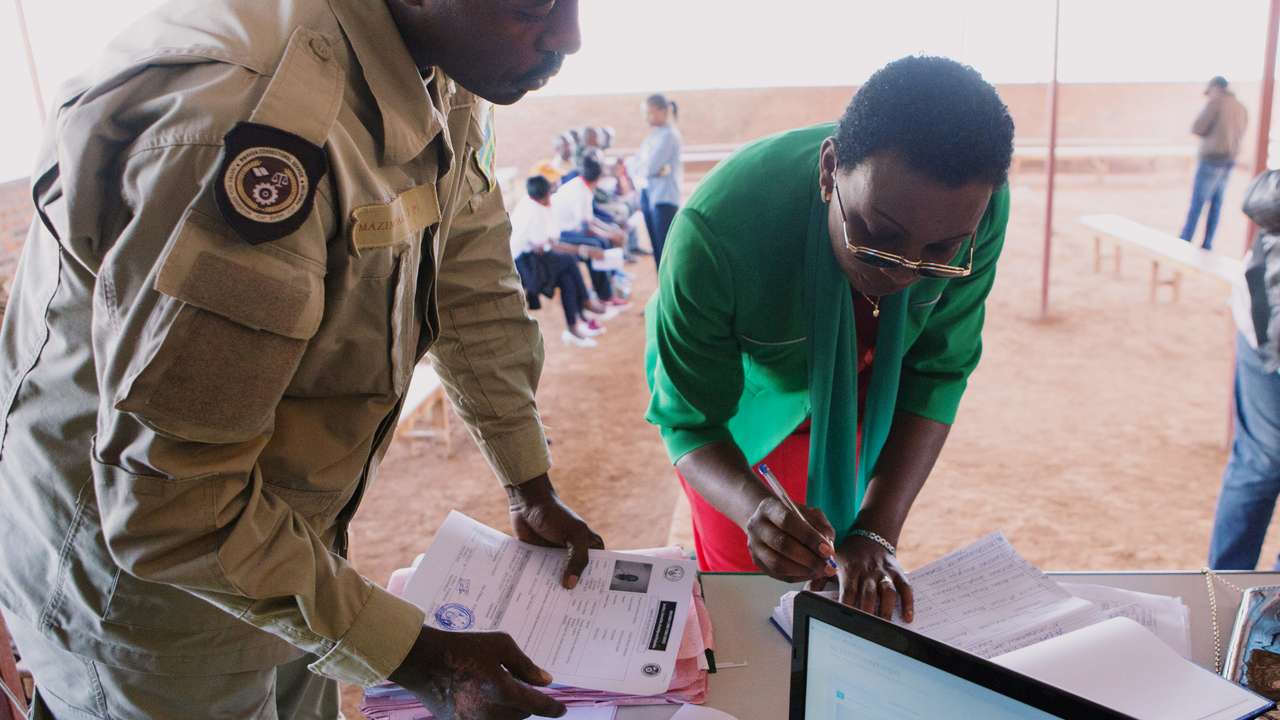Tuesday, July 16, will be dedicated to parliamentary elections for special interest groups, including women, youth, and persons with disabilities. Rwandans will choose between three presidential candidates and over 500 aspiring MPs during the upcoming polls.
Distribution of Ballot Materials
The National Electoral Commission (NEC) of Rwanda has commenced the distribution of electoral materials nationwide ahead of the upcoming presidential and parliamentary elections. Starting on Friday, July 12, three days before the elections, NEC will dispatch ballot papers, voter lists, and electoral ink to all districts across the country.
NEC spokesperson Moise Bukasa assured that each district has a dedicated vehicle for transporting these materials, ensuring timely delivery and readiness by July 13. Additionally, polling stations abroad have already received the necessary materials to facilitate voting for Rwandans living overseas.
"We ensured that each district has a dedicated vehicle for transporting electoral materials, so everything will be in place before the voting day. This ensures that all districts are fully equipped and prepared maybe two days before elections," he told The New Times.
Diaspora voting
Rwandans in the diaspora will cast their votes on July 14. The NEC has established 160 polling stations in 70 countries, coordinated by 44 Rwandan diplomatic missions. These measures are aimed at ensuring that Rwandans abroad can participate in both the presidential and parliamentary elections.
Charles Munyaneza, the NEC executive secretary, told The New Times on July 11, "Some of our foreign missions are serving other polling stations in other countries. For example, the embassy in France is coordinating with countries like Spain and Italy, appointing representatives to oversee the elections there. Our High Commission in South Africa is also coordinating with neighbouring countries, including Lesotho and Mauritius.”
How about visually impaired voters?
To ensure inclusivity, NEC has introduced braille ballot papers for visually impaired voters. These voters can cast their ballots independently and confidentially.
For those unfamiliar with braille, NEC permits assistance from a child aged 14 to 18, ensuring the voter's choices remain uninfluenced.
Who are the candidates?
Among the nine presidential candidacy applications, only President Paul Kagame, Frank Habineza of the Democratic Green Party of Rwanda (DGPR), and independent candidate Philippe Mpayimana have been cleared to run. Kagame, who has been in power since 2000, is seeking a fourth term. Habineza, a seasoned political activist, has faced some challenges, including a period of exile. Mpayimana, a journalist who has lived in exile since the 1994 genocide, is hopeful of garnering support from the diaspora.
The electoral system
The president of Rwanda is elected by a simple majority vote and serves a seven-year term. Initially limited to two terms, the constitution was amended in 2015 to allow for extended tenure, drawing international criticism.
Rwanda's bicameral Parliament consists of the Senate and the Chamber of Deputies, with both chambers representing the people, passing laws, and overseeing executive actions.
Eligibility to vote
Every Rwandan aged 18 and above, who is registered on the voters' register and not subjected to disenfranchisement, is eligible to vote. This includes Rwandans residing both in the country and abroad. However, certain individuals, such as those convicted of serious crimes or those with mental illness, are prohibited from voting as per the electoral law.
Subject to the electoral law, the following persons are thus prohibited from voting;
- A person who has been deprived of his or her right to vote by competent courts and has not been rehabilitated or has not been granted amnesty under the Law;
- A person convicted of manslaughter or murder
- A person convicted of the crime of genocide or crimes against humanity
- A person who was convicted of defilement
- A person convicted of the crime of rape
- A person with or who shows signs of mental illness or any other person who disrupts public order at a polling site
- A prisoner
- A refugee
